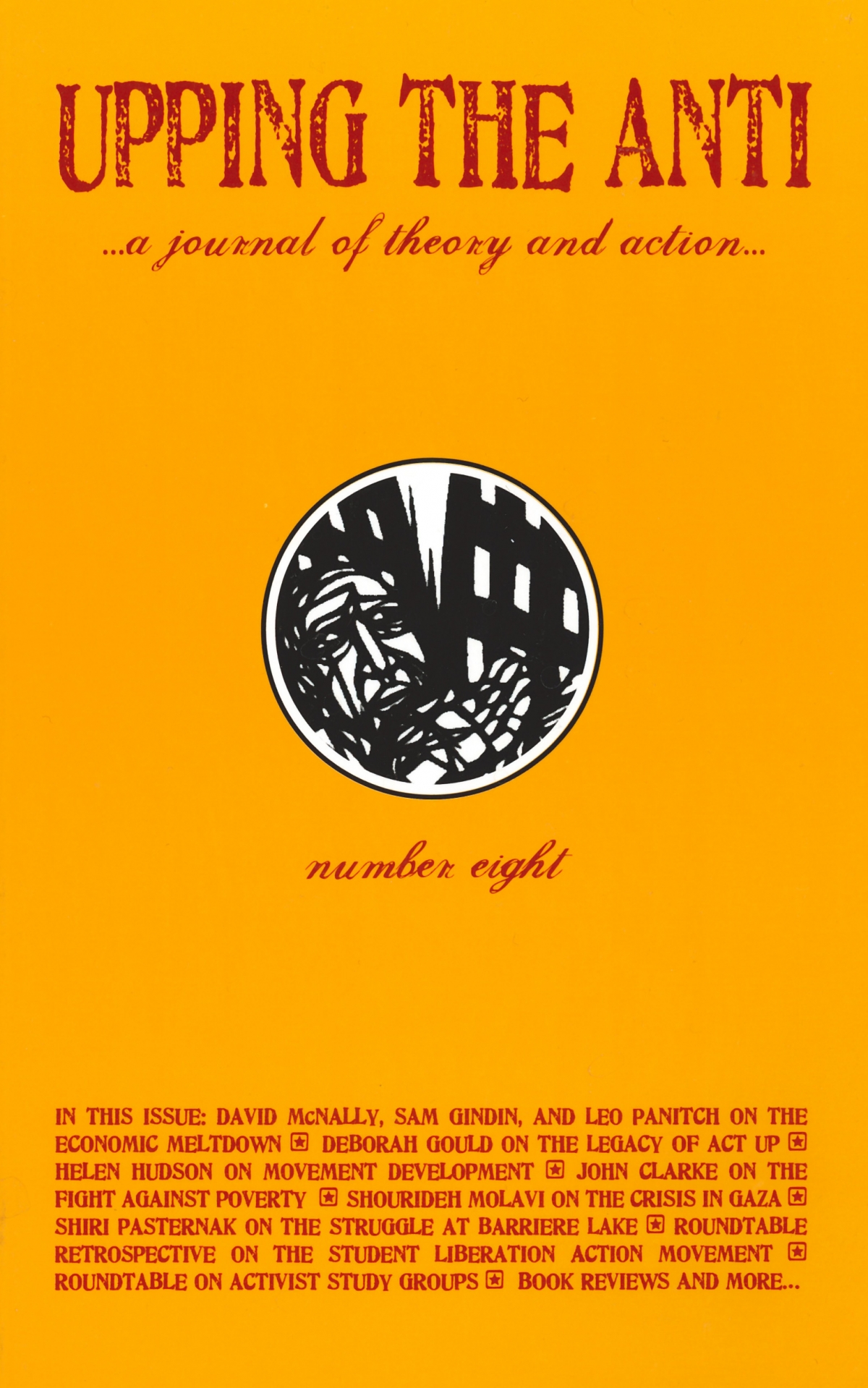Danger at Daybreak
Dear UTA,
UTA’s most recent editorial (UTA 7) makes several points that deserve further elaboration, if only to underscore how important it is that activists and theorists engage with the tensions the editors highlight and confront the consequences they entail.
First, the editors are right to assert that, “The opportunity to confront the catastrophe directly – the opportunity to cut decisively against the narrative arc of progress – is forfeited the moment we lose sight of the fact that these events are not anomalies” (34-35). This forfeiture easily becomes a lethal foreclosure that undermines the possibility of any rigorous analysis of political economy.
Second, following Walter Benjamin, the editors contend that the “state of emergency” invoked by capitalism every time something broke down “was not the exception but the rule.” With the current economic “crisis” now forming the political lens through which all other issues are framed, the importance of Benjamin’s position cannot be overstated.
Third, as Benjamin argued and as the editors were correct to assert: “The unending chain of events is broken by a decisive moment of reckoning.” This decisive moment is impossible without a dramatic rethinking of the myths of eco-vanguardism (eg, primitivism) and “free market” capitalism.
In addition to Benjamin’s analysis, a return to questions raised by George Bataille (particularly in The Accursed Share and his earlier writings on expenditure) would have complimented the editors’ position. First, Bataille forces us to confront the general economy that makes our restricted economy possible. That is, our present economic order and the presumed novelty of the crisis must be considered within a broader logic of energetic expenditure and its historical moment. As Bataille argues in “The Notion of Expenditure,” “human life only rediscovers agitation on the scale of irreducile needs through the efforts of those who push the consequences as far as they will go. What remains of traditional modes of expenditure has become atrophied, and living sumptuary tumult has been lost in the unprecedented explosion of class struggle.”
Second, and perhaps more important, is Bataille’s analysis in “The Psychological Structure of Fascism.” Reading this essay, it is possible to detect an analogy between the reduction of “heterogeneous” social elements to “homogenous” political imperatives in the first half of the 20th century and the reduction of heterostratic concerns in the fields of ecology and political economy into two divided and irreconcilable camps in the present. The ease with which these positions have become entrenched is indeed problematic because, as the editors rightly claim, human production has always involved the interaction between labour and nature (however broadly defined). Thus, the reduction that produces two irreconcilable approaches in current debates repeats an earlier fascistic leveling of heterogeneous social commitments.
Bataille’s contributions notwithstanding, the most fitting adumbration of the current “catastrophe” comes from Benjamin’s dear friend and comrade Bertolt Brecht. In Brecht’s 1939 poem “The Parade of the Old New,” it becomes clear that the question of novelty is outstripped by the rising fascist threat:
Round about stood those who inspire terror, shouting: Here comes the New, it’s all new, salute the New, be new like us! And those who heard, heard nothing but their shouts, but those who saw, saw certain people who were not shouting. / So the Old strode in disguised as the New, but it brought the New with it in its triumphal procession and presented it as the Old. [...] / And the procession moved through the night, but what they thought was the light of dawn was the light of fires in the sky. And the cry: Here comes the New, it’s all new, salute the New, be new like us would have been easier to hear if everything had not been drowned in the thunder of guns.
As UTA’s editors make clear: whether old or new, the march of death will continue if our attention is not simultaneously oriented to the nature-labour relation and the radical transformation of the means of production this pairing demands. Only if our political struggles and theoretical inquiries engage with this problematic can we avoid the fatal error of mistaking fire in the sky for daybreak.
affectionately,
etienne turpin
Toronto

